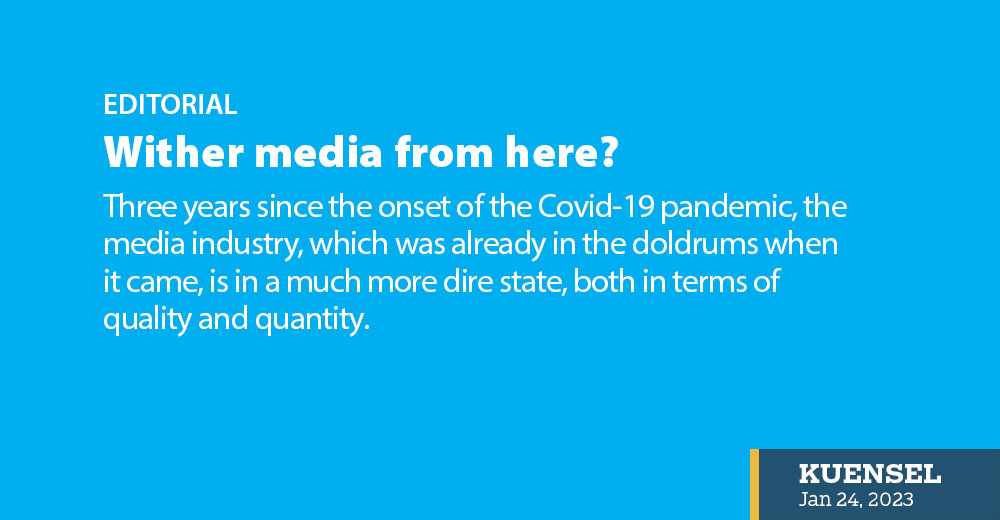Three years since the onset of the Covid-19 pandemic, the media industry, which was already in the doldrums when it came, is in a much more dire state, both in terms of quality and quantity.
The sector has braved difficult winds, chiefly of sustainability issues.
The challenges media face today have worsened over the years and are multifaceted in nature beginning with the lack of professionals, shrinking advertisement revenue to other challenges stemming from the onslaught of social media. Unfortunately, most of the problems are beyond the control of the media houses.
The government subsidy is critical for the growth of media. Subsidies are given in the form of newsprint, tax holidays, and media education, for example. Sometimes, it is given in the form of a direct budget. BBC model in Britain or the NHK in Japan are examples.
Bhutanese newspapers, those that are existing and might come in the future, will need various manner of subsidies. The government has extended a significant help so far. If the receivers of subsidy must thrive, they need to do a lot more to prove their worth.
The upcoming elections are opportunities for the media firms to earn revenue through advertisement. Investment in election campaign publications come with strings attached. The newsrooms could come under a lot of pressure. We have seen that happen here, too. But that is where professionalism must come in. The readers are watching, and, they know.
The Bhutanese media can play an important role, particularly in the upcoming elections. But they will need strong support from society because it will not be easy to play the role of a watchdog in a democratic system. Even constructive criticism is often misunderstood in a small society.
Without that independence, our media can be used by politicians, which can harm the industry and undermine the political system altogether.
The media is viewed as a sensitive sector. It is because it is the media that keeps the government on its toes.
With the start of television in 1999, the media have brought notable society. But we can do more.
What we need to understand, this day more than ever, is that the media is more than just a political and rhetorical requirement.
If Gross National Happiness is to be a reality where we are talking about creating an informed society that can make informed decisions, media have the central role to play, to educate and inform the people. Also to entertain the people.
We hope that the growth of the Bhutanese media finds a fecund ground. The media not only reports on society, but it is also a reflection of society.
It is media, more than government policies, that shape the prosperity and an image of a country. The Bhutanese media have yet to witness this onus fall upon them.


